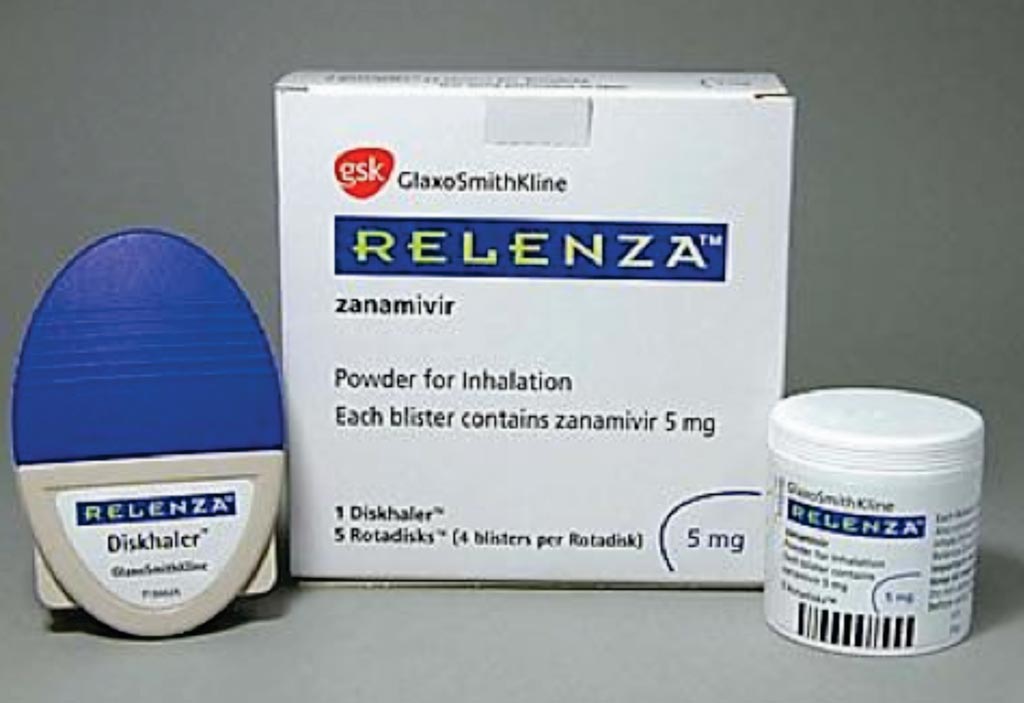Anti-Influenza Agents Assessed for Medical Personnel
By LabMedica International staff writers
Posted on 02 Sep 2017
Antiviral medications with activity against influenza viruses are an important adjunct to influenza vaccine in the control of influenza. The use of antiviral chemoprophylaxis to control outbreaks among high-risk persons in institutional settings is recommended.Posted on 02 Sep 2017
For newly vaccinated staff, antiviral chemoprophylaxis can be administered for up to two weeks (the time needed for antibody development) following influenza vaccination. Chemoprophylaxis may also be considered for all employees, regardless of their influenza vaccination status, if the outbreak is caused by a strain of influenza virus that is not well-matched by the vaccine.

Image: Relenza (zanamivir) is a prescription inhalation powder for the treatment and prevention of influenza (Photo courtesy of GlaxoSmithKline).
Scientists at the Aichi Medical University Hospital (Nagakute, Japan) undertook a survey to evaluate the compliance and the tolerability of oseltamivir and zanamivir when they were used as post-exposure prophylaxis among the medical staffs in the 2014–2015 seasons to understand a characteristic of adverse events caused by anti-influenza agents. During the study period, 540 medical staffs received oseltamivir (75 mg twice a day for five days) or zanamivir (twice a day for five days) as post-exposure prophylaxis of influenza, respectively.
The investigators reported that 411 of 540 medical staffs (76.1%) provided responses to questionnaire investigations. The adverse events caused by oseltamivir were reported by 86 of 382 medical staffs (22.5%). The most frequent adverse events were gastrointestinal adverse events (13.4%), followed by systemic and local diseases (11.8%), diseases of the nervous system (7.9%) and neuropsychiatric adverse events (0.5%). On the other hand, adverse events caused by zanamivir were reported by one (3.4%) of 29 medical staffers.
The authors concluded that their survey revealed that 22.5% subjects experienced some adverse events due to oseltamivir and the regimen showed lower compliance than was to be expected. Conversely zanamivir showed high adherence with lower incidence of adverse events. The study was published on August 3, 2017, in the Journal of Infection and Chemotherapy.
Related Links:
Aichi Medical University Hospital













